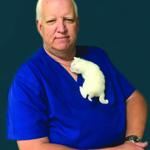THURSDAY, Oct. 30, 2025 (HealthDay News) — Puberty is the time when children’s bodies start to make hormones that lead to physical changes and signs of maturation.
It prepares the body for reproduction. It is also when significant growth occurs. In girls, it starts around age 8 and in boys, it starts around age 9, but there can be some variation. Puberty usually lasts about two to three years.
What spurs the start of puberty?
The body starts changing when hormones are released from the pituitary gland in the brain. The hormones are released in a specific pattern that then stimulates the ovaries in girls and the testicles in boys.
What causes the changes that occur in the body?
In girls, when the ovaries are stimulated, they start to make a hormone called estrogen. The estrogen then causes breast tissue to develop and starts to affect the uterus, eventually leading to a girl having her first period. Estrogen also stimulates the growth of eggs. During puberty, girls’ hips widen.
In boys, when the testicles are stimulated, they start to enlarge, and they make testosterone and sperm. Testosterone leads to a boy's penis getting larger, voice getting deeper and facial hair beginning to grow. Throughout puberty, boys become broader and more muscular.
In both boys and girls, other hormones are released from the adrenal glands during puberty and can lead to acne; pubic and underarm hair; and body odor.
During this time, young people have “growth spurts” when they start to grow taller. Growth slows down towards the end of puberty. In girls, this is around 13 to 14 years of age, and in boys, around 16 to 17.
What are the health issues that might crop up?
During puberty, some young people might start to gain weight more quickly, and it is important to eat healthily and include fruits, vegetables and whole grains in the diet. Hormonal changes can lead to acne and body odor, and health hygiene, like showering and wearing deodorant is important. Sometimes, a person can experience a wide range of emotions, and it’s helpful to find someone to talk to about this – a friend, a parent or a trusted person. In boys, sometimes breast tissue (gynecomastia) can develop, but this usually resolves by the end of puberty.
What could cause earlier or delayed puberty?
Sometimes puberty can start earlier or later than a person expects. Breast development in girls before age 7 or 8 may mean that puberty is starting early. Usually this is normal, but you should see a doctor to evaluate for genetic conditions or very rarely, certain tumors. Later puberty in girls can also be normal. Some families have a pattern of late puberty. Late puberty could also mean that the ovaries may have a problem making estrogen.
In boys, early puberty before age 9 could be due to a tumor and should be evaluated by a doctor. Signs of early puberty are enlargement of the testicles and penis. Pubic hair and underarm hair don't necessarily mean puberty has started. Later puberty in boys can be a family pattern or can be due to not enough testosterone being produced.
When should you be concerned?
If a girl has a period before age 10, hasn't started to develop breast tissue by age 13, or hasn’t had a period by age 15 to 16, an evaluation by the pediatrician is recommended. In boys, enlarging testicles or penis size before age 9, or no growth in the size of testicles by age 14 should prompt an evaluation by the pediatrician.
How to talk to your child about puberty
During a child’s yearly visit with the pediatrician, he or she will be examined for signs of puberty. You can start preparing your child for puberty when you notice physical changes such as breast development or body odor.
A great way to introduce puberty is to explain that over the next few years, your child will notice changes in their bodies and that those changes are normal. As they get older, you can give them more age-appropriate information.
As a girl gets closer to her period, it is a good idea to make a “period kit” with pads in a zippered case so she will feel prepared at school.
There is no exact “end” to puberty, though it is usually around the time that children stop growing in height. By this time, hormonal and physical changes that prepare the body for reproduction are complete.
In a girl, getting a first period towards the end of puberty means that she would be able to get pregnant. In a boy, the sperm production that occurs during puberty means that he would be able to get someone pregnant.
Discussing puberty with your child is important so that he or she feels comfortable coming to you with questions during this time of change in their lives.
About the expert
Dr. Tamar G. Baer is Director of the Pediatric Endocrinology & Diabetes Fellowship Program at Children’s Hospital at Montefiore, and Assistant Professor, Pediatrics at Montefiore Einstein. Her clinical focus is in pediatric endocrinology, differences in sexual development and diabetes.
What This Means For You
Puberty can be confusing for kids and parents, too. Understanding what’s normal helps you know when to relax and when to check in with a pediatrician.





















(0) comments
Welcome to the discussion.
Log In
Keep it Clean. Please avoid obscene, vulgar, lewd, racist or sexually-oriented language.
PLEASE TURN OFF YOUR CAPS LOCK.
Don't Threaten. Threats of harming another person will not be tolerated.
Be Truthful. Don't knowingly lie about anyone or anything.
Be Nice. No racism, sexism or any sort of -ism that is degrading to another person.
Be Proactive. Use the 'Report' link on each comment to let us know of abusive posts.
Share with Us. We'd love to hear eyewitness accounts, the history behind an article.